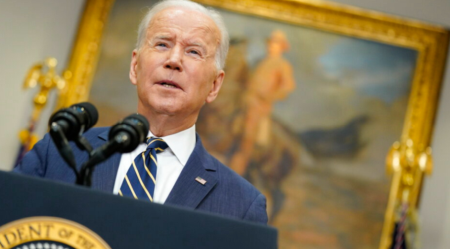Increasing the Federal Corporate Tax Rate to 28% would cause workers to suffer in 3 ways
By David R. Henderson
What is the worst of President Biden’s latest proposed tax increases? It’s hard to say. There are many strong candidates. So rather than choose the worst, I’ll choose what I think are the two worst: the increase in the corporate income tax rate from 21 percent to 28 percent; and the increased tax rates on capital gains.
Consider first the corporate tax rate. Seventy years ago, economists believed that the burden of the corporate income tax fell largely on corporations. But the increasing globalization of capital in the last 40 years has changed that. Because people can set up corporations in other countries, they have an incentive to choose countries where their income is taxed lightly or even not at all.
 The late Walter Wriston, former Chairman & CEO of Citicorp, put it well:
The late Walter Wriston, former Chairman & CEO of Citicorp, put it well:“Capital goes where it’s welcome and stays where it’s well treated.”
One main way to treat capital well is not to expropriate it; another is not to tax it heavily.
One main way to treat capital well is not to expropriate it; another is not to tax it heavily.
Because capital is mobile, governments that tax it heavily will cause there to be less capital than otherwise. It will go elsewhere.
U.S. federal, state and local governments already tax corporate income more heavily than the average member country of the Organization for Economic Cooperation & Development (OECD): 25.7 percent versus 22.8 percent. Biden would raise the combined rate to 32.2 percent. That means less capital per worker in the United States, which means workers would be less productive than otherwise, making their real wages lower than otherwise.
The fact is, you can’t judge who pays the corporate income tax by looking at who writes the check.
Much of the burden of the tax is on workers, even those who own not a single share in a corporation. Still, some of the burden is on who writes the check.
And guess who owns a huge share of corporate America? Workers through their pension plans – whether they be 401(k)s or IRAs.
Also, with less production, prices of many goods and services will be higher than otherwise. So increasing the federal corporate tax rate to 28 percent would cause workers to suffer in three ways:
1.) Lower Real Wages
2.) Less Pension Wealth, and
3.) Higher Prices of Goods & Services
2.) Less Pension Wealth, and
3.) Higher Prices of Goods & Services
Biden also proposes to increase capital gains tax rates.
Under the current law, the top federal and state tax rate on capital gains is 29.1 percent, which, the Tax Foundation points out, is already well above the 18.9 percent average for OECD countries excluding the United States. Biden would raise that top rate to a whopping 49.8 percent – making it 163 percent higher than the non-US OECD average.
That would also discourage investment in capital.
Biden ran in 2020 on the campaign slogan “Build Back Better.” With his tax, spending and regulatory policies all hamstringing the economy, a more accurate slogan would be “Reduce Economic Growth.”
 This Institute for Policy Innovation TaxByte was written by David R. Henderson, a research fellow with the Hoover Institution at Stanford University.
This Institute for Policy Innovation TaxByte was written by David R. Henderson, a research fellow with the Hoover Institution at Stanford University.























